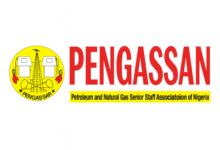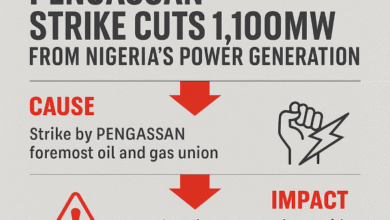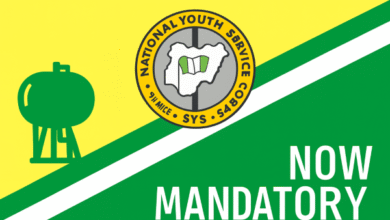WAMI DG Calls For Harmonisation Of West Africa Monetary Zone
 The Director-General, West African Monetary Institute, WAMI, Mr. Abwaku Englama, has urged member states that make up the West African Monetary Zone (WAMZ) to close ranks in order to bring about a much-needed financially integrated status to the economic sub-region. Englama, who stated this in Lagos noted that enhanced co-operation among various stakeholders is also important for ensuring effective integration of the zone.
The Director-General, West African Monetary Institute, WAMI, Mr. Abwaku Englama, has urged member states that make up the West African Monetary Zone (WAMZ) to close ranks in order to bring about a much-needed financially integrated status to the economic sub-region. Englama, who stated this in Lagos noted that enhanced co-operation among various stakeholders is also important for ensuring effective integration of the zone.
Englama said “Integrated financial markets including insurance are a key element in the transmission process and hence for the smooth conduct of monetary policy in the envisaged common central bank arrangement for the WAMZ.
Financial integration also leads to better diversification of risks and makes a positive contribution to financial stability by improving the capacity of economies to absorb shocks.
“On the other hand, fully integrated financial markets also pave the way for shocks to propagate more quickly among market participants and across countries, which could necessitate appropriate safeguards.
To mitigate the risks and maximize benefits from financial integration, it is imperative that the financial markets are developed and integrated further in the Zone,” Englama stated.
According to him, integration of the insurance sector in a monetary union must be pursued consciously and conscientiously with clear time lines outlined for the various components of the integration efforts.
“The fierce urgency for the WAMZ is to adopt immediate and workable strategies to accelerate the integration process of the financial sector, particularly the insurance sub-sector in order to facilitate trade in goods and services within the Zone,” he said.
Englama said that several factors still constrain particularly the growth and integration of the regional financial sector and specifically that of the insurance market.
The key challenges and the concomitant proposal towards resolving them are non harmonisation of legal and regulatory frameworks; non existence of a single licensing regime; non mutual recognition among regulators; inadequate regionally compatible financial infrastructure; non existence of cross-border supervisory practices; weak data gathering mechanism amongst others.
According to Englama, the key challenges to the insurance sector integration in the WAMZ include the lack of harmonisation of legal and regulatory frameworks governing the sector, the high costs of transaction, and the insolvency regime.
Jurisdiction dissimilarities include measurement of assets, minimum capital requirements, regulatory solvency capital, insurance laws, solvency laws, policy holder priority during wind-up, scope and coverage of insurance policies and the existence of other types of policyholder protection,” Englama said.











